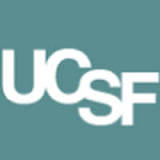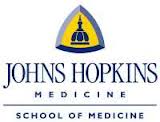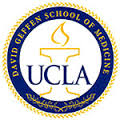Comparison of Therapeutic Regimens for Scleroderma Interstitial Lung Disease (The Scleroderma Lung Study II)
| Status: | Completed |
|---|---|
| Conditions: | Lung Cancer, Skin and Soft Tissue Infections, Pulmonary, Dermatology |
| Therapuetic Areas: | Dermatology / Plastic Surgery, Oncology, Pulmonary / Respiratory Diseases |
| Healthy: | No |
| Age Range: | 18 - Any |
| Updated: | 3/30/2013 |
| Start Date: | September 2009 |
| End Date: | May 2014 |
| Contact: | Grace Ibrahim |
| Email: | gibrahim@mednet.ucla.edu |
| Phone: | 310-206-0396 |
Mycophenolate vs. Oral Cyclophosphamide in Scleroderma Interstitial Lung Disease (Scleroderma Lung Study II)
Scleroderma is a rare, long-term autoimmune disease in which normal tissue is replaced with
dense, thick fibrous tissue. Normally, the immune system helps defend the body against
disease and infection. In people with scleroderma, the immune system triggers fibroblast
cells to produce too much of the protein collagen. The extra collagen becomes deposited in
the skin and organs, causing hardening and thickening that is similar to the scarring
process. Although scleroderma most often affects the skin, it also can affect other parts of
the body, including the lungs, and in its most severe forms scleroderma can be
life-threatening. Scleroderma-related interstitial lung disease is one example of a
life-threatening scleroderma condition. In people with symptomatic scleroderma-related
interstitial lung disease, scarring occurs in the delicate lung tissue, compromising lung
function. The purpose of this study is to determine whether people with symptomatic
scleroderma-related interstitial lung disease experience more respiratory benefits from
treatment with a 2-year course of mycophenolate mofetil or treatment with a 1-year course of
oral cyclophosphamide.
Interstitial lung disease describes a condition in which the lung tissue has become scarred
or inflamed. Interstitial lung disease caused by scleroderma, specifically seen as
progressive pulmonary fibrosis, occurs in approximately 40 percent of patients with
scleroderma and has emerged as the leading overall cause of death.
In a previous study, the Scleroderma Lung Study I (SLS I), investigators evaluated a 1-year
cyclophosphamide (CYC) treatment for people with scleroderma-related interstitial lung
disease. The study results demonstrated statistically significant improvements in forced
vital capacity, total lung capacity, dyspnea, Rodnam skin scores, and several measures of
quality of life. However, when patients were followed for another year after completing
their CYC therapy, the beneficial effects of CYC waned and were no longer significant by the
24-month follow-up. Preliminary information suggests that an alternative immunosuppressive
medication, mycophenolate mofetil (MMF), may be effective in treating this disease, be given
for longer periods, and result in fewer side effects.
This study, the Scleroderma Lung Study II (SLS II), will compare the safety and efficacy of
a 2-year treatment with MMF versus a 1-year treatment with CYC. Specifically, investigators
will determine whether MMF produces similar or better improvements in lung capacity and
fewer side effects throughout the entire 2-year period.
Participation will include about 21 study visits over a 2-year period. Eligible participants
will be randomly assigned to receive either MMF twice daily for 2 years or CYC once daily
for 1 year, followed by placebo for 1 year. Blood and urine samples will be collected every
2 weeks for the first 2 months and then once a month for the remainder of the study. Every 3
months, participants will attend study visits that will include pulmonary function tests,
blood and urine sampling, a physical exam, and questionnaires about current health and
medications. At the final study visit, participants will also undergo a high resolution
computerized tomography (HRCT) scan and possibly a punch biopsy.
Inclusion Criteria:
- The presence of either limited (cutaneous thickening distal but not proximal to
elbows and knees, with or without facial involvement) or diffuse (cutaneous
thickening proximal to elbows and knees, often involving the chest or abdomen)
scleroderma, as determined by American College of Rheumatology criteria
- Dyspnea on exertion (grade 2 on the Magnitude of Task component of the Mahler
Modified Dyspnea Index)
- FVC less than 80 percent of predicted value at screening
- Onset of the first non-Raynaud manifestation of SSc within the prior 84 months
- Presence of any ground glass opacification on thoracic high resolution computerized
tomography (HRCT)
- Repeat FVC at the baseline visit (Visit 2) within 10 percent of the FVC measured at
screening
Exclusion Criteria:
- FVC less than 45 percent of predicted value
- Carbon monoxide diffusing capacity (DLCO) (HBg-corrected) less than 30 percent of
predicted value and less than 40 percent of predicted when documentation of pulmonary
artery pressures by echocardiogram, right heart catheterization or magnetic resonance
imaging identifies clinically significant pulmonary hypertension
- FEV1/FVC ratio less than 65 percent
- Clinically significant abnormalities on HRCT not attributable to scleroderma
- Diagnosis of clinically significant resting pulmonary hypertension requiring
treatment, as ascertained before study evaluation or as part of a standard of care
clinical assessment performed outside of the study protocol
- Persistent unexplained hematuria (more than 10 red blood cells per high-power field
[RBCs/hpf])
- History of persistent leukopenia (white blood cell count less than 4000) or
thrombocytopenia (platelet count less than 150,000)
- Clinically significant anemia (less than 10g/dl)
- Baseline liver function test (LFTs) or bilirubin more than 1.5 times the upper limit
of normal, other than that due to Gilbert's disease
- Concomitant and present use of captopril
- Serum creatinine more than 2.0mg/dL
- Uncontrolled congestive heart failure
- Pregnant (documented by urine pregnancy test) and/or breastfeeding
- Prior use of oral CYC or MMF for more than 8 weeks or the receipt of more than two
intravenous doses of CYC in the past
- Use of CYC and/or MMF in the 30 days before random assignment
- Active infection (lung or elsewhere) whose management would be compromised by CYC or
MMF
- Other serious concomitant medical illness (e.g., cancer), chronic debilitating
illness (other than scleroderma), or unreliability or drug abuse that might
compromise the patient's participation in the study
- Current use, or use within the 30 days prior to random assignment, of prednisone (or
equivalent) in doses of more than 10 mg/day
- If of child bearing potential (a female participant <55 years of age who has not been
postmenopausal for > 5 years and who has not had a hysterectomy and/or oophorectomy),
failure to employ two reliable means of contraception (which may include surgical
sterilization, barrier methods, spermicidals, intrauterine devices, and/or hormonal
contraception).
- Use of contraindicated medications; more information on this criterion can be found
in the study protocol
- Smoking of cigars, pipes, or cigarettes in the 6 months before study entry
- Use of medications with putative disease-modifying properties within the past month
(e.g., D-penicillamine, azathioprine, methotrexate, Potaba)
We found this trial at
12
sites
Click here to add this to my saved trials
72 East Concord Street
Boston, Massachusetts 02118
Boston, Massachusetts 02118
(617) 638-5300

Boston University School of Medicine A leader in medical education and research, Boston University School...
Click here to add this to my saved trials
500 Parnassus Ave
San Francisco, California 94110
San Francisco, California 94110
(415) 476-9000

University of California, San Francisco UCSF's clinical enterprise is recognized nationally for its leading health...
Click here to add this to my saved trials
Click here to add this to my saved trials
733 North Broadway
Baltimore, Maryland 21205
Baltimore, Maryland 21205
(410) 955-3182

Johns Hopkins University School of Medicine Johns Hopkins Medicine (JHM), headquartered in Baltimore, Maryland, is...
Click here to add this to my saved trials
171 Ashley Avenue
Charleston, South Carolina 29425
Charleston, South Carolina 29425
843-792-1414

Medical University of South Carolina The Medical University of South Carolina (MUSC) has grown from...
Click here to add this to my saved trials
Click here to add this to my saved trials
Click here to add this to my saved trials
National Jewish Health National Jewish Health is known worldwide for treatment of patients with respiratory,...
Click here to add this to my saved trials
Click here to add this to my saved trials
10833 Le Conte Ave
Los Angeles, California 90095
Los Angeles, California 90095
(310) 825-4321

David Geffen School of Medicine, UCLA In 2002 Mr. David Geffen announced a $200 million...
Click here to add this to my saved trials
New Brunswick, New Jersey 08854
Click here to add this to my saved trials
